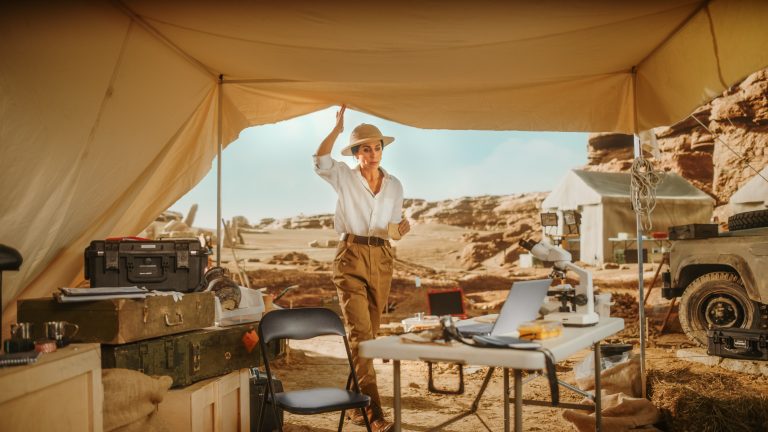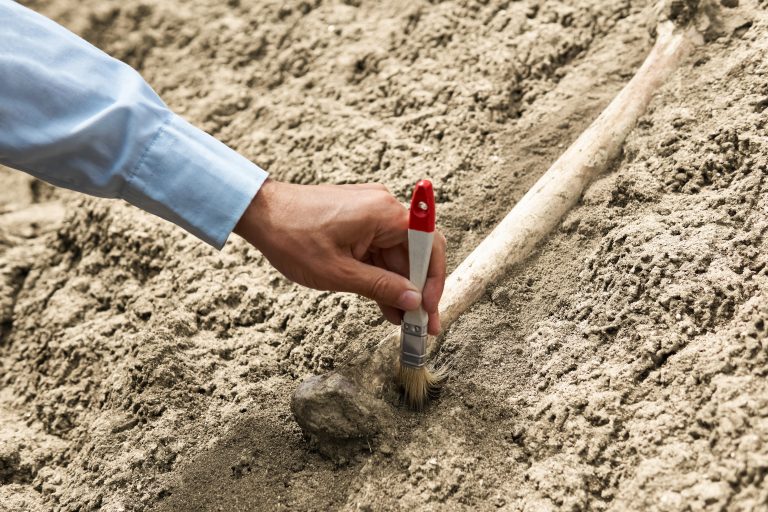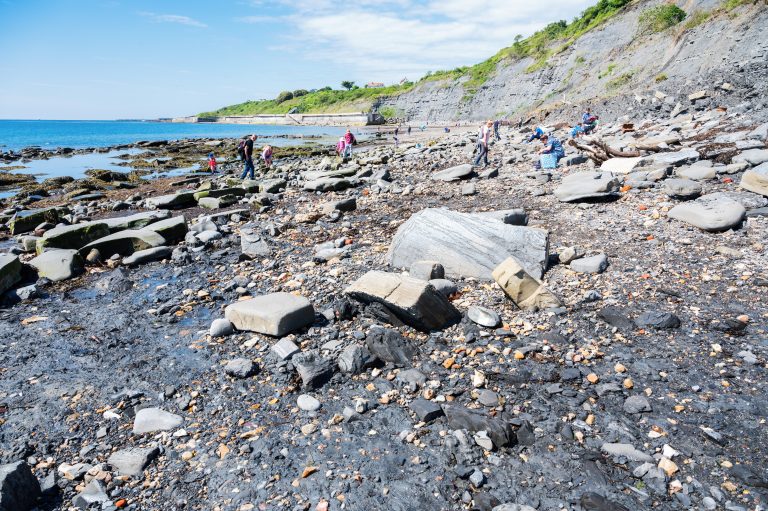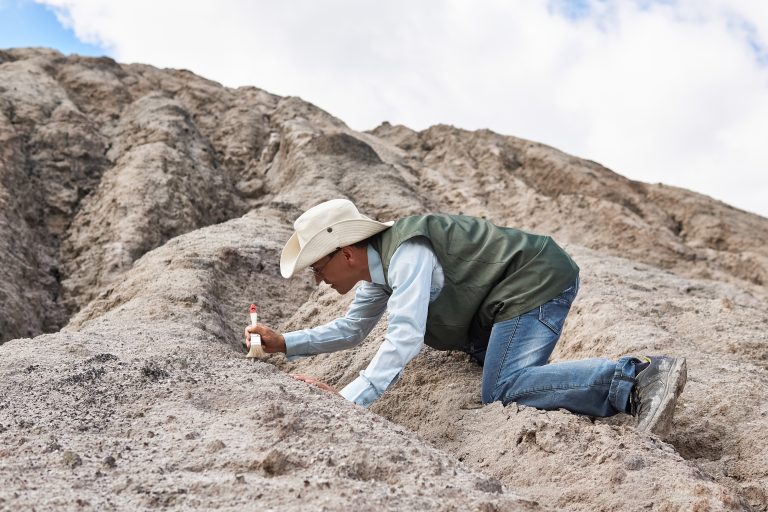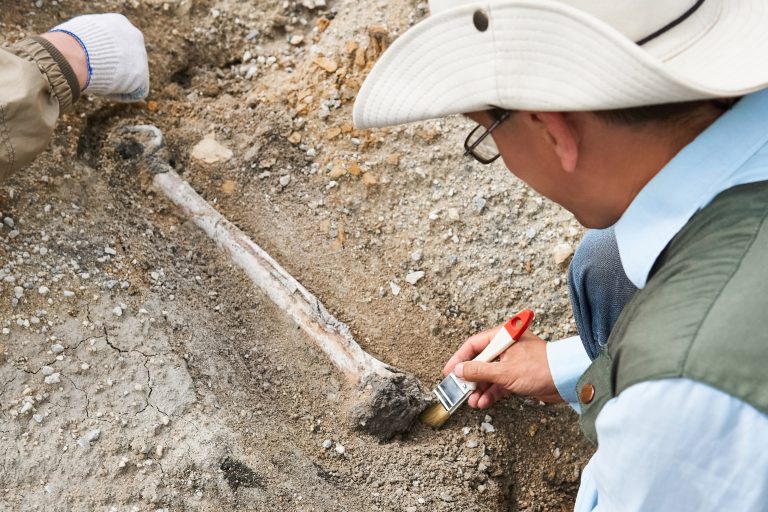9 Eco-Friendly Tips for Sustainable Paleontology Travel

Embarking on a journey through the annals of Earth’s history is a thrilling adventure, but as responsible travelers, we must tread lightly. Let’s dig into how we can explore the wonders of paleontology without leaving a footprint that lasts longer than the fossils we admire.
As paleontology enthusiasts, we journey through Earth’s history, but we must minimize our environmental impact. Eco-paleo travel merges our passion with a commitment to the planet’s future, preserving natural archives for generations. This guide shares eco-friendly tips for a green prehistoric pilgrimage.
1. Choosing Low-Impact Transport
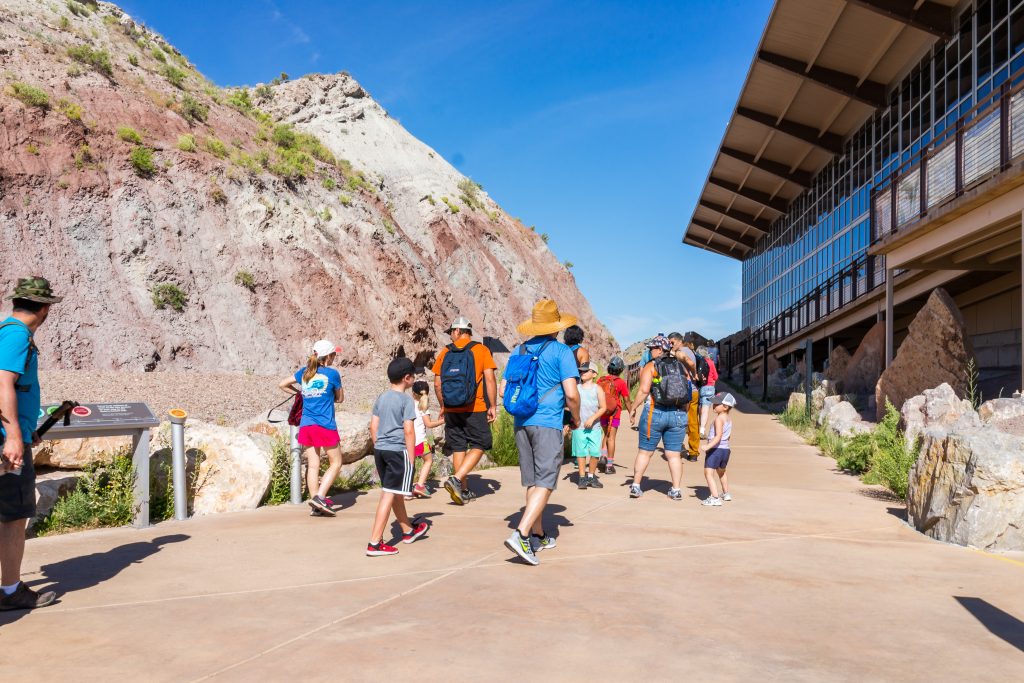
When planning your paleo-field trip, consider the carbon footprint of getting there. Opt for direct flights when possible, as take-offs and landings are the most fuel-intensive parts of a journey. If you’re venturing closer to home, public transport or car-sharing with fellow fossil enthusiasts can significantly reduce emissions.
And let’s not forget the joy of cycling or hiking to nearby sites (bonus points for the extra cardio). These methods are not just lighter on the planet; they can also enhance your connection to the landscape you’re exploring.
Hey hey! Don’t forget to subscribe to get our best content 🙂
2. Packing for Sustainability
Packing for an eco-friendly expedition means choosing items that are durable, reusable, and necessary. A stainless-steel water bottle, for example, is a paleo-traveler’s best friend (those plastic ones are prehistory).
Invest in high-quality gear that can withstand the tests of time and terrain, reducing the need for frequent replacements. And remember, every item you pack should earn its place in your backpack – if it’s not essential, it’s excess.
3. Eco-Friendly Accommodation

Seek out accommodations that share your environmental ethos. Many lodges and hostels now boast sustainable practices, like solar power and water conservation systems.
Some even offer immersive experiences, like staying in a reconstructed dinosaur habitat (no actual dinosaurs included, unfortunately). By supporting these establishments, you’re voting for a greener hospitality industry with your wallet.
4. Supporting Local Economies
When you venture into a community rich in paleontological treasures, support the locals who call it home. This could mean buying supplies from a nearby store, hiring local guides, or dining at a mom-and-pop diner (where the stories are as hearty as the meals). Your travel dollars can help preserve local heritage and incentivize the protection of natural wonders.
5. Leave No Trace Principles
The Leave No Trace principles are like the golden rules of eco-paleo travel. They remind us to respect both the ancient ecosystems we study and the modern ones we inhabit.
Stick to marked trails, don’t remove anything from sites (seriously, those fossils aren’t souvenirs), and always pack out your trash. It’s all about leaving the sites as untouched as the day they were discovered.
6. Participating in Conservation
Participating in conservation efforts can be the most rewarding part of your trip. Many paleontological sites are linked to broader conservation projects that you can get involved with, from habitat restoration to public education. It’s a chance to give back to the very landscapes that give us so much insight into our planet’s past.
7. Responsible Fossil Excursions

Always ensure that your fossil-hunting excursions are legal and conducted under the guidance of professionals. Unauthorized digging can damage delicate sites and disturb the stratigraphy that’s crucial for scientific study.
Plus, working with experts not only protects the integrity of the sites but also enriches your understanding of paleontological techniques.
8. Minimizing Water Usage
Water is a precious resource, especially in the often arid regions where fossils are found. Take short showers, reuse towels, and report any leaks at your accommodations. Every drop counts, and conserving water is just another way we can ensure that the regions we visit continue to thrive.
9. Educating Others on Eco-Travel
Sharing your eco-travel experiences can inspire others to follow in your low-impact footsteps. Whether through social media, blog posts, or good old-fashioned conversation, educating others about sustainable practices can create a ripple effect. After all, the more people who travel thoughtfully, the greater our collective efforts to protect the planet’s prehistoric wonders.
As we walk in the shadows of towering dinosaurs and marvel at the imprints of ancient plants, let’s pledge to do so with care and consideration. By following these eco-friendly tips, we ensure that our journey through time honors the past while safeguarding the future.

